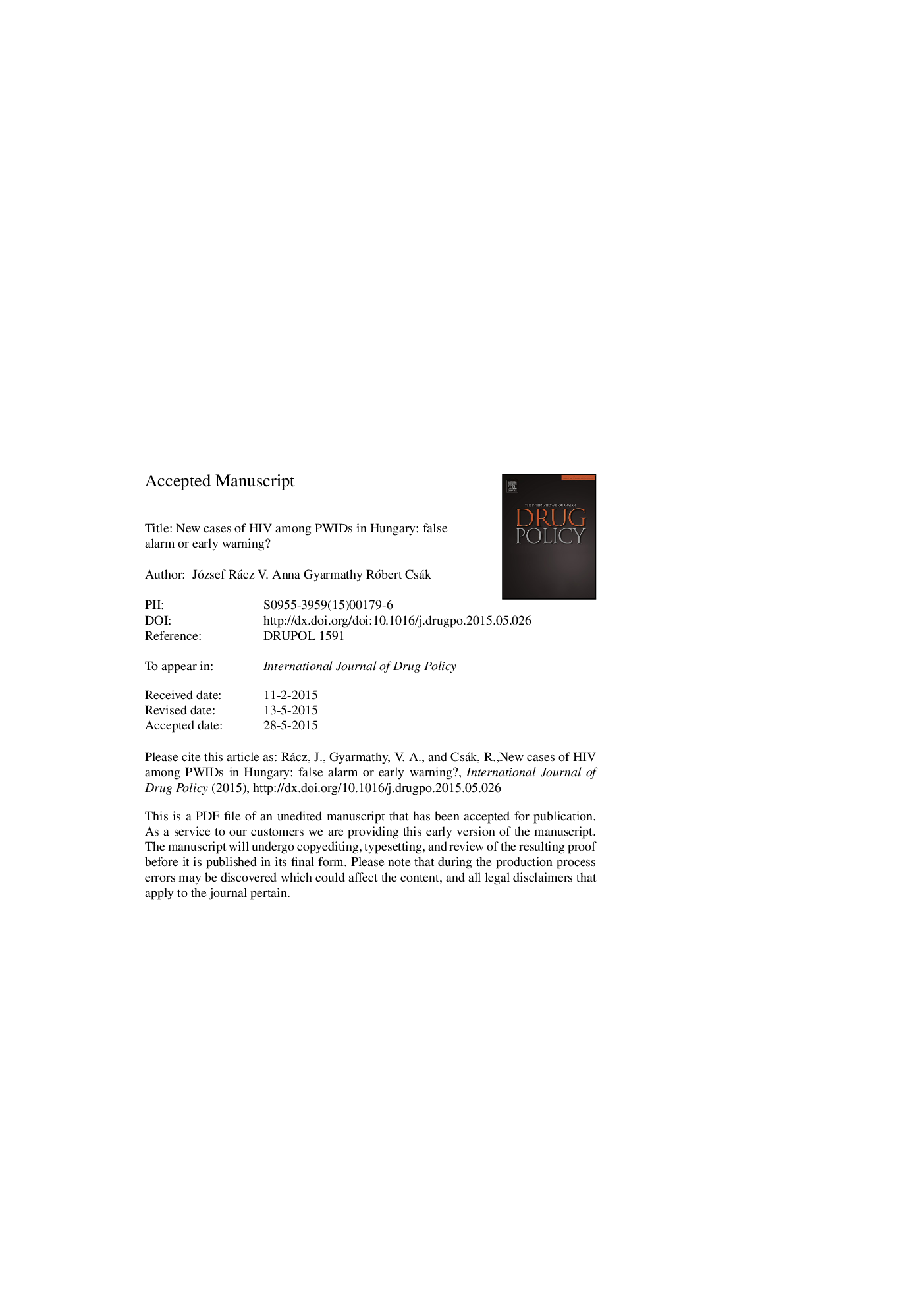| Article ID | Journal | Published Year | Pages | File Type |
|---|---|---|---|---|
| 7512869 | International Journal of Drug Policy | 2016 | 19 Pages |
Abstract
Between 2009 and the first quarter of 2014, only one case of HIV (contracted outside Hungary) was detected among PWIDs in Hungary. However, more recent evidence suggests increased sharing of injecting paraphernalia among PWIDs. This is linked to the emergence of new designer drugs that require frequent injection, alongside funding cuts to the Hungarian needle exchange program (NEP) which has reduced access to sterile injecting equipment. During the past five years in Hungary, drug use has become increasingly discussed in moral as opposed to public health terms, and drug consumption has been re-criminalized. The largest NEP in Hungary was closed because of political pressure and government funding for regular HCV/HIV testing/counselling and seroprevalence studies among PWIDs has been stopped. This paper describes the detection of two new cases of HIV infection in PWIDs attending two NEPs in Budapest in May 2014. These new cases may indicate an unfolding HIV outbreak among PWIDs-similar to those reported in Greece and Romania. Yet the question remains: If no further HIV cases are detected, is this because there are no new cases or because there are no testing facilities for PWID?
Related Topics
Health Sciences
Medicine and Dentistry
Psychiatry and Mental Health
Authors
József Rácz, V. Anna Gyarmathy, Róbert Csák,
